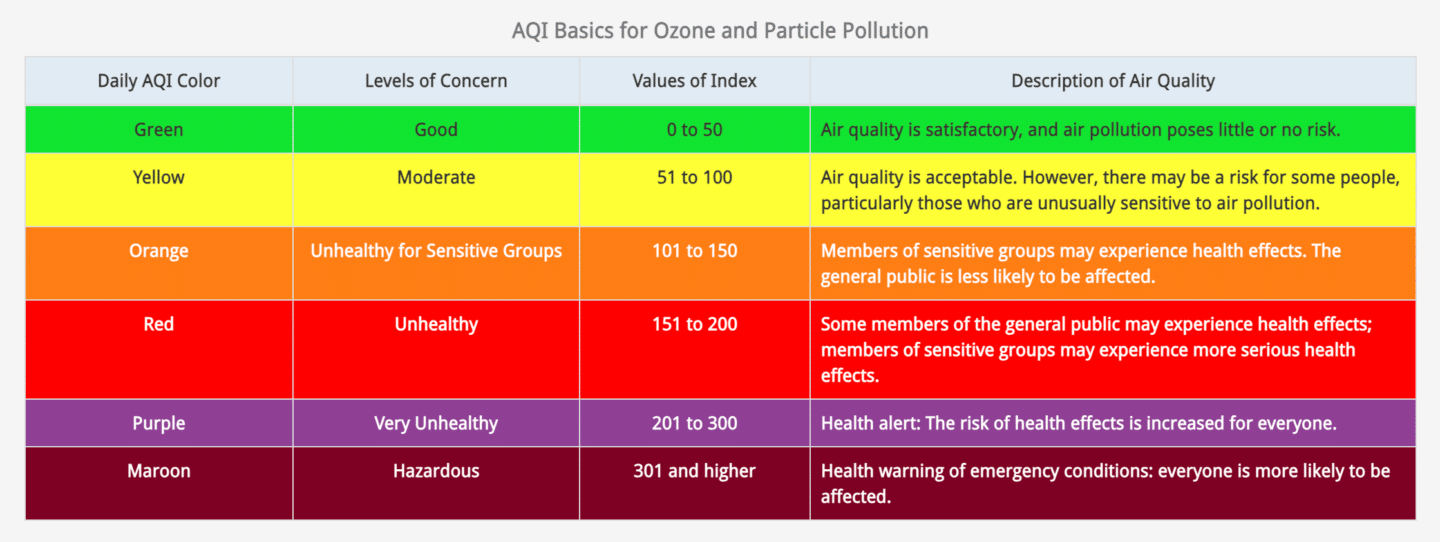What to know about air quality alerts and pregnancy
With air quality alerts continuing to impact millions of people across the country—estimates now say up to one-third of the U.S. population are affected by the smoke from Canadian wildfires—it’s important to remember that air pollution and wildfire smoke can be especially harmful if you’re pregnant. Air quality alerts aren’t to be ignored—especially for those who are most vulnerable, including pregnant people, kids under 18, adults over 65, and those with cardiovascular or lung conditions, like heart disease or asthma.
“Pollution can have severe and potentially long-lasting effects on pregnant people and fetuses. As pregnant people breathe in polluted air, they expose themselves and their developing fetuses to harmful substances such as particulate matter, carbon monoxide, nitrogen oxides, and lead, among others,” says Shawana Moore, DNP, MSN, CRNP, WHNP-BC, a board-certified women’s health nurse based in Atlanta and Medical Advisor at Mira.
Unfortunately, studies show air pollution can increase the risk of low birth weight, preterm birth, miscarriage and stillbirth, which is why taking extra precautions to protect yourself when air quality alerts are issued is “crucial and essential,” says Dr. Moore. It’s yet another example of how climate change directly impacts women’s health.
If you’re receiving alerts that the air quality in your area is “unhealthy” or worse, here’s what to do.
How the Air Quality Index (AQI) works
Ranging from 0 to 500, the Air Quality Index is a scale showing the greater the level of air pollution, the greater the health concern. An AQI value of 0 to 50 poses little or no health risk from pollution, whereas an AQI value of 300 or above could be hazardous. The AQI is divided into six categories, and each category corresponds to a different level of health concern and distinct color.
AQI values at or below 100 are generally thought of as satisfactory for most people. When AQI values are above 100, air quality is unhealthy: at first for certain sensitive groups of people, then for everyone as AQI values get higher, notes AirNow.gov, the government website that issues the Air Quality Index.
blogherads.adq.push(function(){
blogherads.defineSlot(‘flexrec’, ‘ad_div_in_body_2’).setTargeting(‘targetingKey’,
‘targetingValue’).display();
});

How to manage unhealthy air quality in pregnancy
If you’ve received a notification that the air quality in your area is rated unhealthy for sensitive groups or worse (an AQI of 101 or higher), here are the tips Dr. Moore recommends to protect your health in pregnancy.
Avoid outdoor activities
When you’re pregnant, even outdoor activities such as walking could be more strenuous on your body when the air quality is poor. “Breathing air polluted with fine particulate matter places strains on the heart and can quickly exacerbate heart conditions,” says the New York State Department of Health. Pregnancy can also place more stress on the heart. It’s essential to remain indoors as much as possible, particularly during peak burning hours when wildfire smoke is most intense, notes Dr. Moore. If you do need to be outside in unhealthy air quality, aim for short durations.
Wear masks
Break out your stash of N95 masks, which can provide significant protection from fine particulate matter and other toxins. If you’re pregnant, or if you have young children who may be sensitive to air pollution, masking up whenever you have to be outdoors in poor air quality is recommended, as is avoiding activities that require heavy exertion.
Use air filters
If you’re spending lots of time indoors, it’s smart to keep windows closed and invest in an air filter, which can capture fine particulate matter that may enter the home. High-efficiency particulate air (HEPA) filters are particularly effective in capturing fine particles.
Monitor air quality
Stay informed about air quality levels in your area by using air quality index apps or indoor monitors. Most comprehensive weather apps will show you the environmental air quality index along with other details. Remember, heed the warnings!
blogherads.adq.push(function(){
blogherads.defineSlot(‘flexrec’, ‘ad_div_in_body_1’).setTargeting(‘targetingKey’,
‘targetingValue’).display();
});




